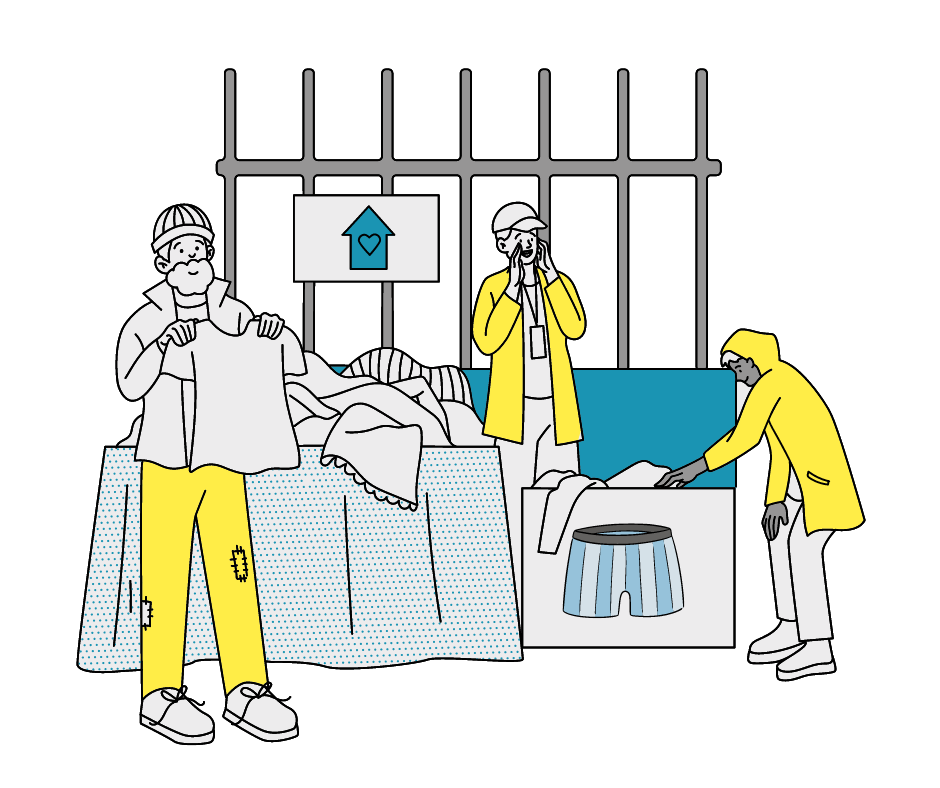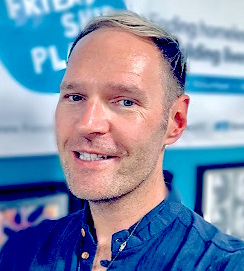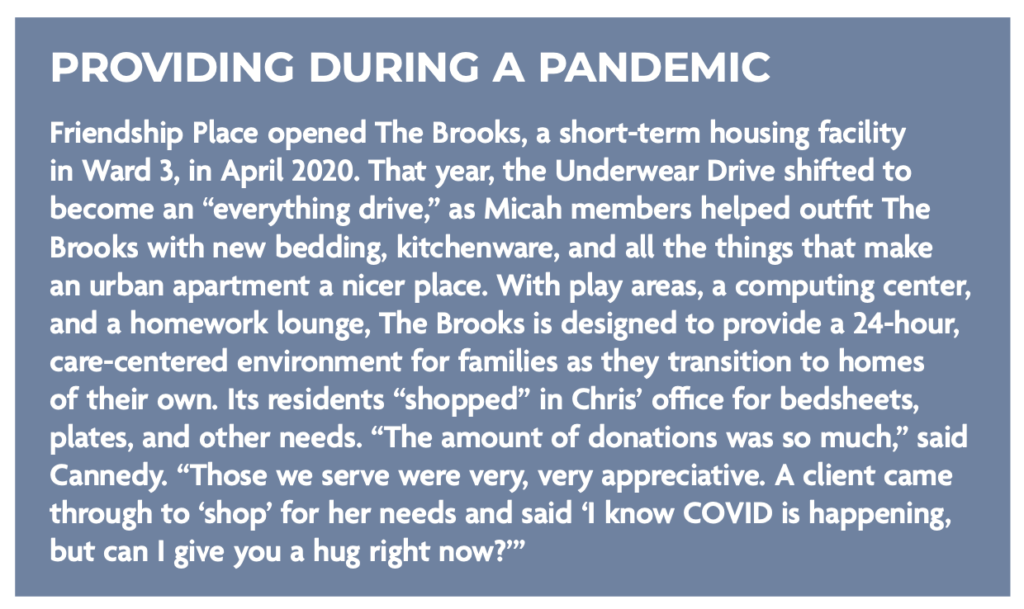Volunteers
It’s So Much More Than Underwear


An Interview with Friendship Place’s Chris Cannedy
By Martha Adler with Jeannelle D’Isa
If you’re new to Temple Micah, you may wonder…
Underwear?
For the past 22 years, Temple Micah’s 6th graders and their families have partnered with Friendship Place, a nonprofit dedicated to serving D.C. residents experiencing homelessness. The Underwear Drive, held annually from the High Holy Days through November helps provide a year’s supply of new, clean underwear to the city’s unhoused. The drive has been a way for our 6th graders to serve our local community while learning to think globally. As we prepare for this year’s Underwear Drive launch, we talked with Chris Cannedy, Community Engagement Manager of FriendshipPlace, to learn more about what brought him to this work and help answer the question “why underwear?”
Cannedy began his work at Friendship Place in 2019. A Micah neighbor and a member of the National Cathedral, Chris’ first connection to Friendship Place was volunteering to assemble Easter baskets for their clients. He then traveled to Puerto Rico with other volunteers from the Cathedral after Hurricane Maria in 2017—that trip deeply affected him and redirected his professional pursuits. “I couldn’t
sit in a cubicle anymore after the hurricane cleanup,” Chris said. “I left my 9-to-5 job in insurance claims and came to Friendship Place.” He was hired as a development assistant, but soon discovered he had a gift for organization—coordinating volunteers, arranging donations, planning logistics for events— and moved to the more “people-centered” work of community engagement.
“I hate sitting at a desk all day long. Now I can get out and get Friendship Place’s needs met—tell people how they can support us.” When asked how he felt about accepting (and storing!) around 20,000 pairs of underwear, socks, bras, t-shirts, and thermals per year from the Micah Underwear Drive, Cannedy commented gracefully. “I appreciate and feel the trust the community has in me to accept donations and to be that middle man.”
As Cannedy explained, lacking clean underwear can impact an unhoused person’s health, which is why donated underwear and foundation garments are so crucial. “When people come to Friendship Place, they are actively experiencing homelessness or are in danger of it. They have very little. Their self- esteem has been destroyed. They may not even have underwear at all.” From the very start of clients’ relationship with his organization, clean, new under- wear and socks—“something that is uniquely that person’s”—help repair a person’s sense of worth. “We are serious about ending their experience with homelessness. [Underwear] is important. It means a lot in re-introducing people to society and rebuilding their confidence.”
Underwear brings those experiencing homelessness to Friendship Place. “The Welcome Center is often full of underwear. People come to us for clean socks and get connected with employment assistance, hygiene, and dental and medical care, so underwear helps our personnel help our clients.” The street outreach team at Friendship Place “just grabs a pile of underwear when they go out,” Chris said. Along with hygiene kits and other basics, “[The underwear you donate] helps build trust.” People living on D.C.’s streets hear about the clean underwear Friendship Place supplies, come to the Welcome Center, and grow comfortable staying to have other needs met. An undershirt or a bra can become the first unobtrusive step on a path to better outcomes.
Alan Banks, a formerly homeless individual now working at Friendship Place’s Welcome Center, helped shape Chris’ rhetoric with his lived perspective: Friendship Place’s clientele are currently experiencing homelessness. And anyone can experience homelessness, Chris emphasized: “Most people in the U.S. are living paycheck to paycheck. It can happen quickly. It’s not just those people out there.”
Chris’ parting remarks were straightforward: if you see a homeless person, he said, take the time to greet them. Acknowledge them—don’t just walk by. If you are able to and wish to, give them a dollar or two. It doesn’t take long to make a human connection on even our busiest days.








